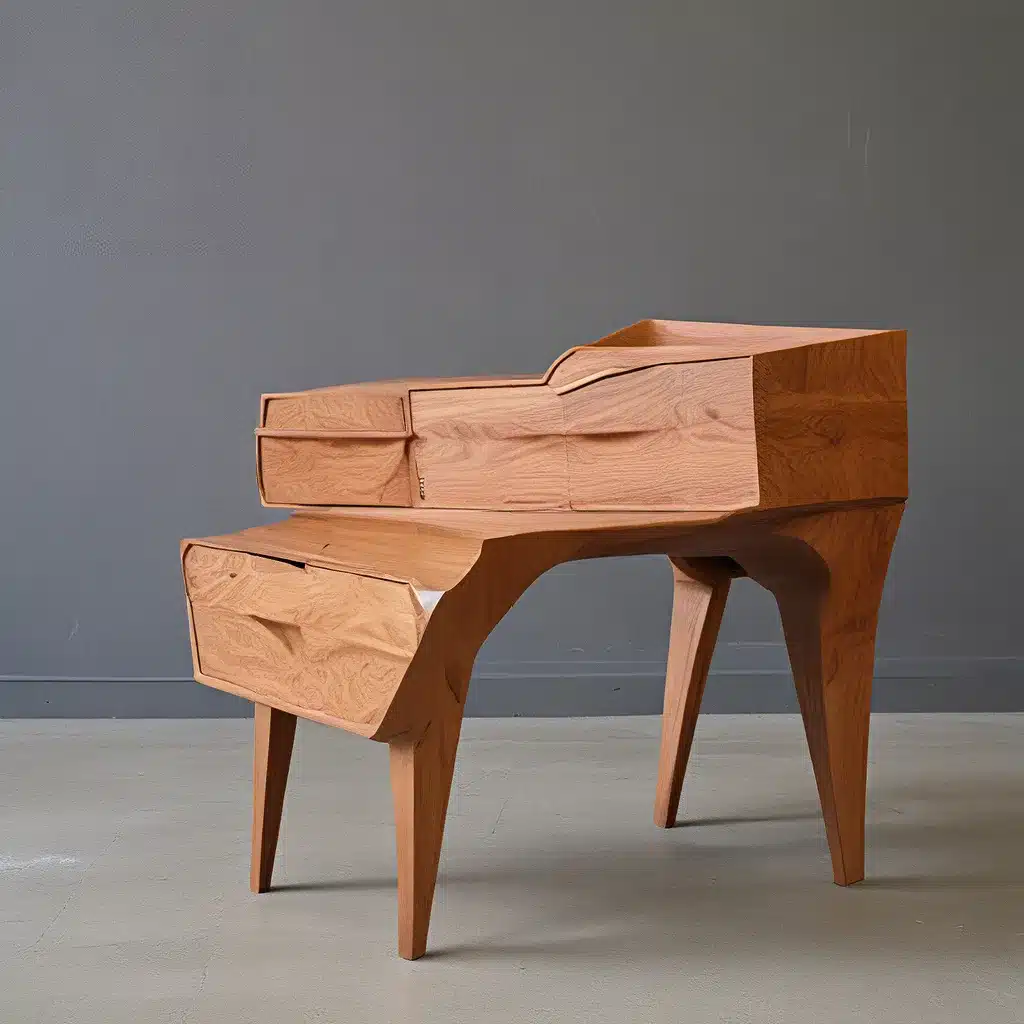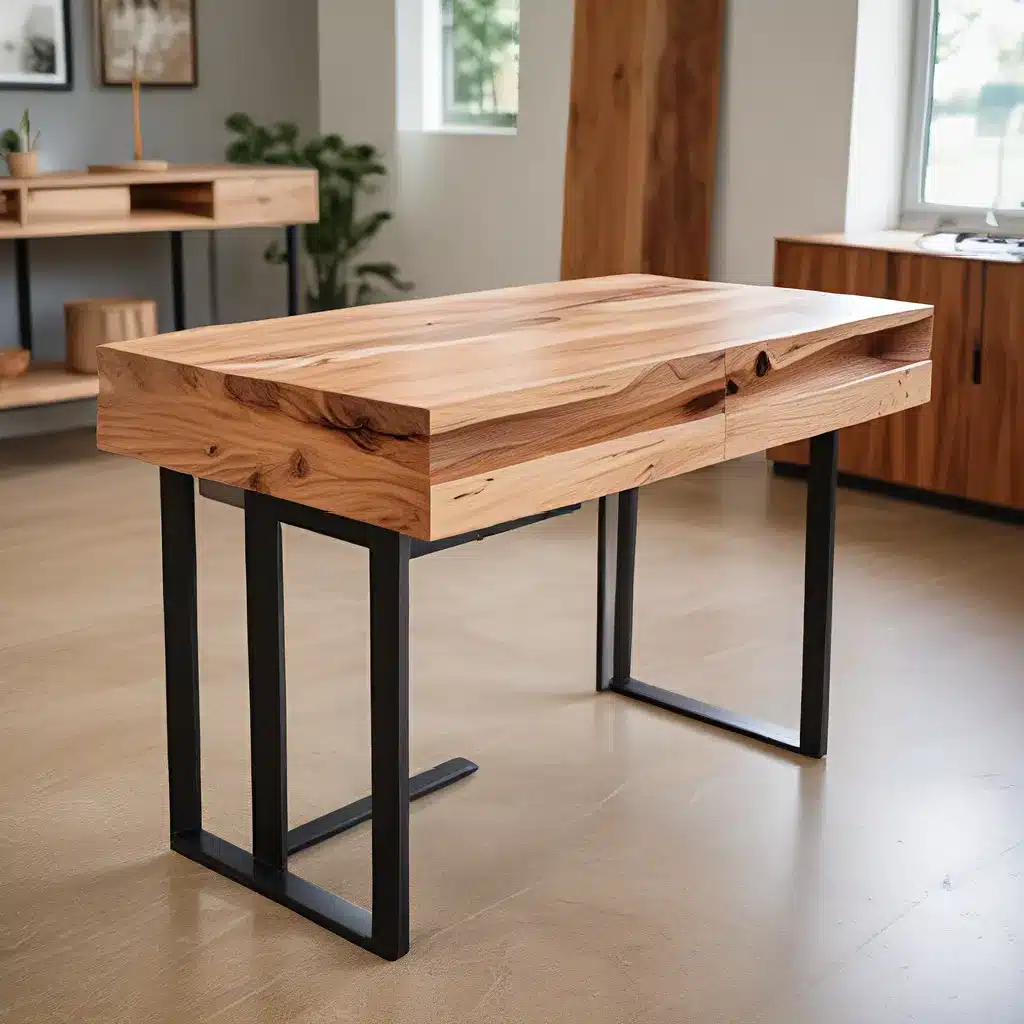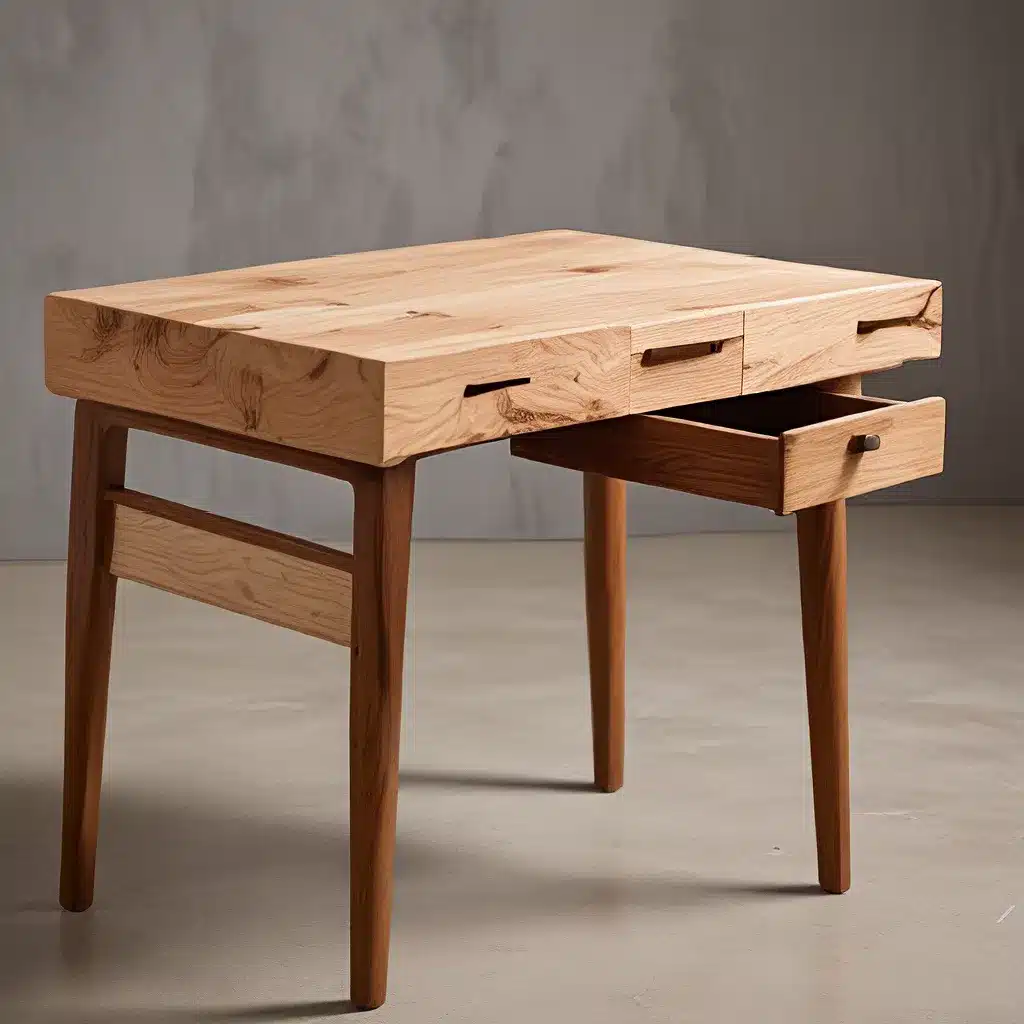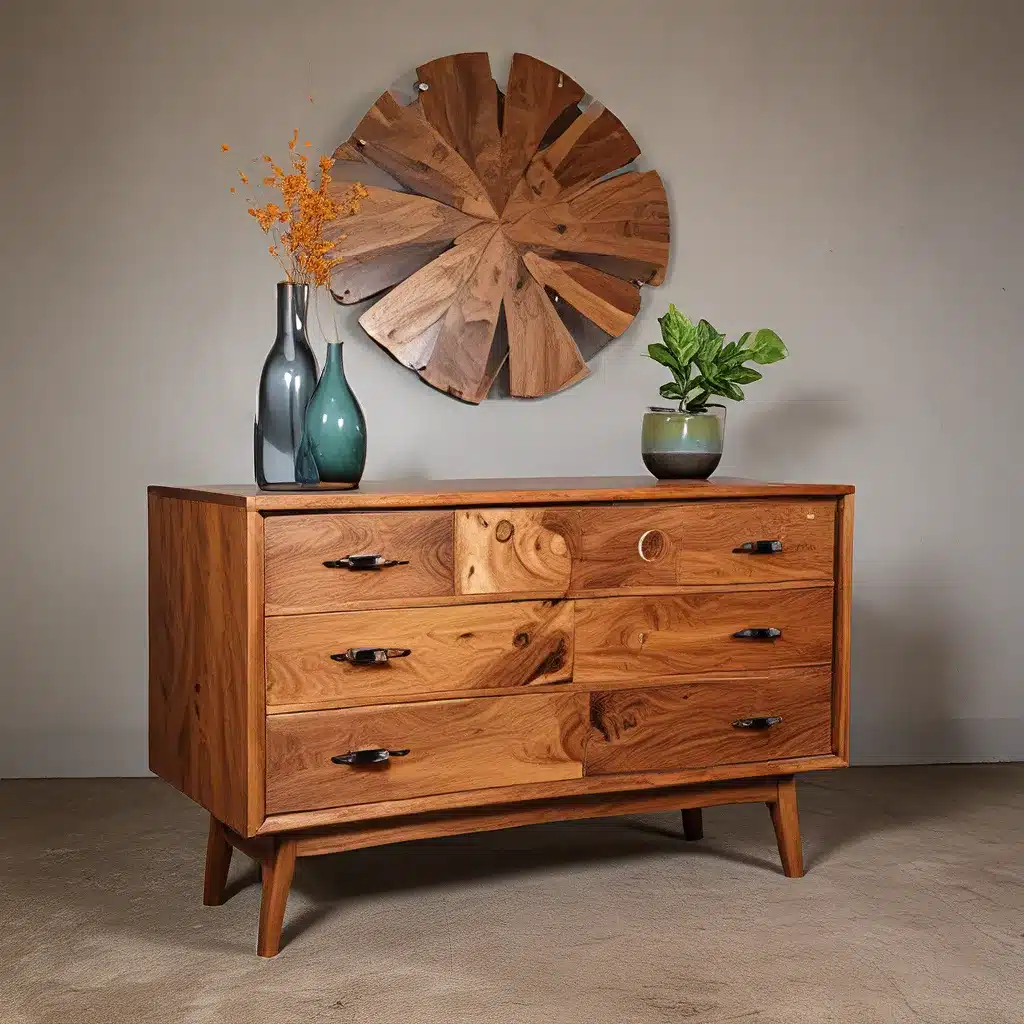
The Furniture Maker’s Dilemma: Rethinking the Linear Approach
Ah, the age-old conundrum facing furniture makers like myself – how do we create stunning, bespoke pieces while minimizing our environmental impact? After all, the traditional “take-make-dispose” model of production has long dominated the industry, leaving a trail of waste and depleted resources in its wake. But what if I told you there’s a better way? A way to not only craft beautiful furniture but also to contribute to a greener, more sustainable future?
Enter the circular economy – a transformative economic model that challenges the linear approach and advocates for resource optimization, sustainability, and waste reduction. In this circular paradigm, products and materials are kept in use for as long as possible, their value maximized through reuse and recycling. It’s a shift that requires a systemic change in production, consumption, and design, one that fosters innovation and sustainability.
Embracing Circular Workplace Design: The Sustainable Advantage
As a bespoke furniture maker, I’m not just concerned with the impact of my own processes – I’m also passionate about how my work can contribute to a more sustainable workplace. And that’s where the principles of the circular economy come into play. By incorporating these ideas into workplace design, organizations can create a truly resilient and eco-conscious environment.
Circular workplace design offers a multitude of benefits that transcend mere aesthetics and functionality. Firstly, it minimizes the environmental footprint of offices by using sustainable materials and layouts that reduce waste, carbon emissions, and resource depletion. Aligning with global sustainability goals, this approach is a game-changer for organizations looking to reduce their impact.
But the advantages don’t stop there. Circular workplace design also enhances resource efficiency, optimizing the value of materials through refurbishment, reuse, and recycling. This leads to long-term cost savings, making it a smart financial decision as well as an ethical one. And let’s not forget the impact on employee well-being – non-toxic, sustainable materials foster better indoor air quality, comfort, and adaptability, creating a healthier and more productive work environment.
Furthermore, this commitment to circular design stimulates innovation and adaptability, nurturing a culture of creativity that aligns with evolving business needs. It’s a win-win for organizations, enhancing their brand reputation and ensuring compliance with increasingly stringent sustainability regulations.
Integrating Circular Economy Principles into Workplace Design
So, how can furniture makers like myself play a role in this circular revolution? By partnering with organizations to integrate the principles of the circular economy into their workplace design. And it all starts with a shift in perspective.
1. Design and Build Sustainably
The foundation of this integration must begin with developing a mindset of de-construction, ensuring that the materials used in furniture and fixtures can be easily reclaimed and reused at the end of their life cycle. This means prioritizing sustainable materials, modular designs, and thoughtful construction techniques that facilitate disassembly and repurposing.
2. Adopt Modular Solutions
Embracing modular furniture and systems allows for adaptability and ease of repair. When a component malfunctions, it can be effortlessly replaced without the need to discard the entire piece. Moreover, these modular systems can be swiftly reconfigured to meet evolving needs, creating a workplace that is agile and future-ready.
3. Invest in Refurbishment
Prioritizing products designed with future refurbishment in mind is crucial. Maintaining office fixtures and fittings is key to extending their lifecycle, a fundamental aspect of the circular economy. By choosing furniture that can be easily repaired, reupholstered, or refinished, we can reduce waste and maximize the value of existing resources.
4. Minimize Waste
To further embrace the circular economy, we must promote the use of sustainable materials and establish efficient recycling systems within the workplace. Design-wise, providing clear instructions and readily accessible recycling bins can encourage employees to participate in these efforts, minimizing waste generation and fostering a culture of environmental stewardship.
Zyeta: Your Partner in Circular Workplace Design
At Unfinished Furniture, we understand the importance of integrating circular economy principles into workplace design. That’s why we’ve partnered with Zyeta, a leading provider of sustainable furniture and design solutions.
Zyeta’s team of experts is passionate about transforming workspaces into resilient, eco-conscious environments. By embracing the circular economy, they can help organizations unlock a world of benefits – from reduced environmental impact to enhanced employee well-being and cost savings.
So, if you’re ready to take the leap and embrace a greener future for your workplace, reach out to us today. Together, we’ll explore how circular economy principles can be seamlessly integrated into your bespoke furniture and workplace design, creating a space that’s not only beautiful but also sustainable.
Remember, the future is circular, and the time to act is now. Let’s embark on this journey towards a more responsible, resource-efficient world, one piece of furniture at a time.
Stay connected with us on LinkedIn for the latest news, articles, and thought leadership in workplace design and sustainability.








